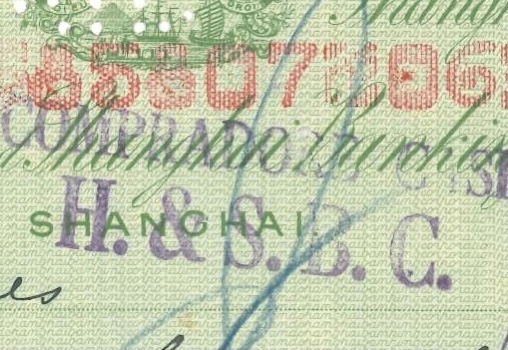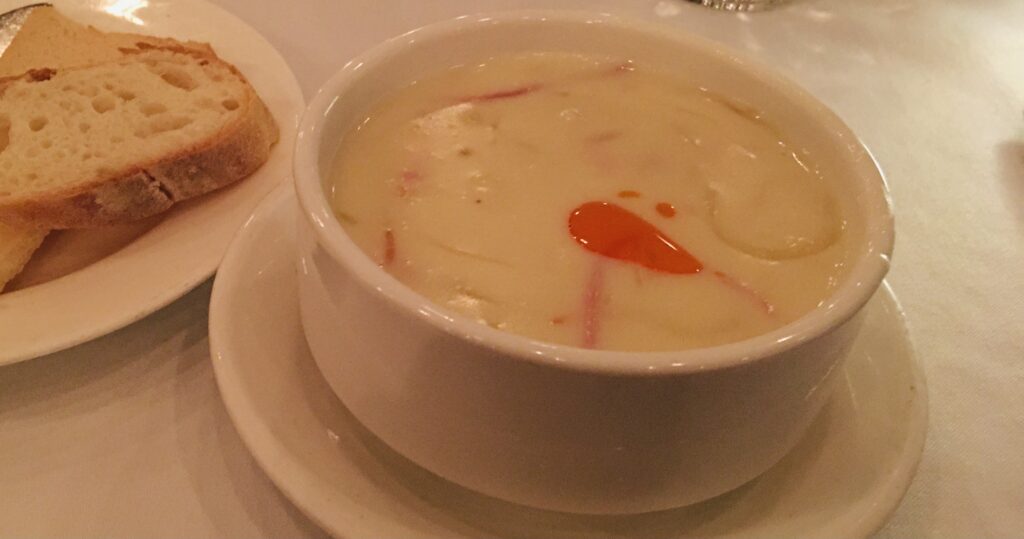A unique social class that emerged in the context of China trade was the compradores. Their education, manner, and lifestyle truly embraced the spirits of what they did – the “middlemen”. In order to excel in the business world, they stood between the Chinese and the Westerners hoping to find common grounds to achieve commercial deals. They aspired to get the best of both worlds – enjoying a Western way of living, yet maintaining the core values of Chinese culture. They mingled with the Westerners in Chinese Pidgin English, which in itself is a manifestation of a fusion of Cantonese and English. These characteristics made the class of compradores distinct from other Chinese. Ernest O. Hauser describes the uniquenesss of the compradores as:
“They were a wonderful invention, those compradores. They went to see the White Man’s customer and talked turkey with him, leisurely, over a cup of green tea. They bought and sold and even made payments in behalf of the White Man—their “compradore orders” were as good as money, or even better. They bridged the terrific gap that yawned between the taipans and the Chinaman. And they formed a distinct little group among themselves, living on the fat margin of the White Man’s going concern, and growing fat themselves.”

The social standing and influence of the compradores are visualized in a dish named after them – the compradore soup. The Hong Kong poet and essayist Leung Ping-kwan 梁秉鈞 (pen name 也斯) dedicates a bilingual poem to this delicacy. The Chinese title of the poem is 金必多湯 : the first three characters 金gam1必bit1多do1 represent the pronunciation of compradore and the last character 湯tong1 means ‘soup’. While there are different ways to transcribe compradore in characters, the choice of 金必多, which means ‘gold-must-plenty’, is indicative of the wish of the compradores and/or the people’s understanding of their status. So what is compradore soup? Like the compradores, the soup is a mix of East and West. Compradore soup is a cream-based soup added with Chinese ingredients such as shark fin. Now, let’s enjoy the poem.
Comprador Soup
Taking pride in your creamy face?
Underneath the smooth surface
One wonders what lurks in secrecy?
To whom is the shark’s fin offered?
Dragging out old time legends of the ancestors
Delicacies easily taken as common stuff
Between the differences in prices
How’s sweet profit gained?
Yesterday the leftover of salty-fish stalls
Today the delicacies waiting for the highest bid
You match-make affection on the palm of a hand
Anyone can propose to shrimps or bass at will
Who’s not haggling around us?
No one puts a scale in the air
A retractable measuring tape in the pocket
Abacus beads going up and down
Those from four corners of the land seeking their own place
Bless that customers flooding in and goods flying off shelves
Was there a child in you and me on the merry-go-round
Dizzy because of drinking too much or spinning too fast?
Gamble all you have to take on a roller-coaster ride
All fall down
The thick paste of wealth seemingly bottomless
Was but petty profit watered down?
金必多湯
以奶油的臉孔驕人?
滑溜的表面底下
不知有甚麼乾坤
把魚翅向誰獻寶?
搬出老祖宗陳年的傳說
山珍海錯容易當了平常
如何在價格的差異間
賺取美味的利潤?
昨天是鹹魚欄裡的剩貨
今天是待價而沽的珍饈
把感情的買賣玩弄於股掌
誰都可隨意投入小蝦或是石斑
咫尺間人人不都在討價還價?
沒有誰在天空上放一把天平
至少口袋裡的軟尺伸縮自如
算盤的各子不住上上下下
來自五湖四海分別找到自己的位置
蒙誰眷顧客似雲來貨如輪轉
旋轉木馬上可有你我的童心?
暈眩因為喝醉還是轉得太快
賭這一回所有財物如過山快車
突然墜落谷底
盡似無底深淵的富貴濃稠
可是蠅頭小利粉末和了開水?
Besides enjoying a more comfortable life, many compradores were keen investors and trend-setters in the modernization of China in education, economy, and science and technology. One of the key figures in modern China is Tong Ting-kü (唐廷樞) (a.k.a. Tong King-sing 唐景星) (1832-1892). Tong was born in 香hoeng1山saan1, 廣gwong2東dong1 (Putonghua: Xiangshan, Guangdong) and received education in English at the Morrison Education Society School. After leaving school, Tong took up some major positions in Hong Kong and China. He was appointed interpreter in the Hong Kong Magistrate’s Court. After that, he joined the Chinese Maritime Customs Service. In 1863, he became the compradore of Jardine, Matheson & Co. in Shanghai. Between 1873 and 1884, he was General Manager of China Merchants’ Steam Navigation Company (now China Merchants Group 招商局). He worked for the Kaiping coal mines until he died in 1892. In addition to being a successful businessman, Tong was also enthusiastic about education, especially the learning of the English language. He is the author of The Chinese and English Instructor (英語集全), a six-volume book containing vocabulary and sentences in Cantonese and English for business communication. While the book mainly targets conventional usage of English, it also includes a variety of English that Tong calls 廣gwong2東dung1番faan1話waa2 , i.e. Canton Pidgin or Canton English. Although the book aims to infuse readers with knowledge of the modern world, the learning of English, conventional or pidgin, follows the long-standing practice in China, namely using characters to transcribe English words. as in the sentences below. The sentences shows a compradore giving instructions in Canton Pidgin or Chinese Pidgin English.2
㕭 ju1米maai5其ki4覓mik6士si6 㕭 ju1干gon1打daa2
you makee mixee you conta
椏aa1鏬laa3捫mun4尼ni4甘gam1烟jin1㕭 ju1砵but6温wan1西sai1
alla money come in you put one side
捫mun4尼ni4跛bai1拿naa4打daa2文man4砵but6拿naa4打daa2西sai1
money pay (a)nother man put (a)nother side
This method of learning English, though not without its limitation, was probably the most straightforward for Chinese learners at the time. Besides the wealth of material, the Instructor is a valuable source as it contains two varieties of English. Language learners and teachers could choose the variety that suited their communicative needs. We can see from the pidgin English sentences above that the pidgin variety differs from the standard variety in several ways. For example, the second person pronoun 㕭 ju1 is identical in the subject and possessive forms. The subject is not necessarily expressed. So, like the characteristics of the compradores and the compradore soup, Chinese Pidgin English is also a language embedding features from Cantonese and English.
1. Hauser, Ernest O. 1940. Shanghai: City for Sale. New York: Harcourt, Brace and Company.
2. Tong, Ting-kü. 1862. The Chinese and English Instructor. Canton.
